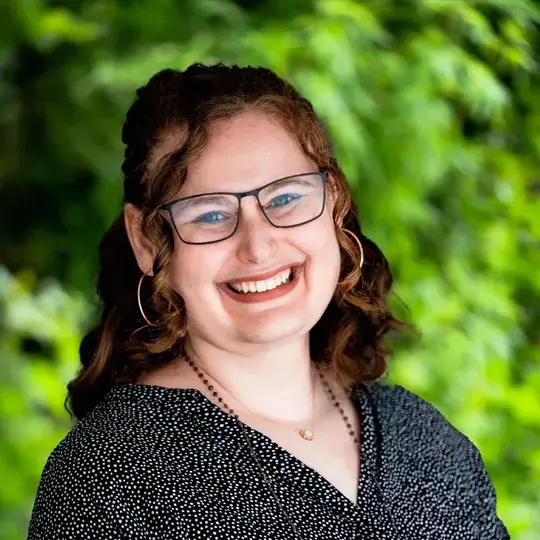Those who grapple with the relentless cycle of obsessions and compulsions often navigate a complex terrain where the boundaries between health, normalcy, and disability become blurred. This medical condition is called Obsessive-Compulsive Disorder and may significantly affect an individual’s daily living. Individuals with this condition may have wondered, “Is OCD a disability?” As they may struggle to do their daily activities and need assistance.
In this article, we will answer the question, “Is OCD a disability?” by diving into what OCD is, what defines a disability, if you can receive benefits from an OCD disability, and the best ways to manage OCD.
What is Obsessive-Compulsive Disorder (OCD)?
Obsessive-Compulsive Disorder, or OCD, is a mental health condition characterized by two main components: obsessions and compulsions. These components make up the two categories that symptoms of OCD fall into. These symptoms may vary in intensity and frequency among individuals. Some individuals may experience primarily obsessions, while others may have a combination of obsessions and compulsions.
Types of Obsessions
Obsessions are categorized by intrusive, distressing, and persistent thoughts, images, or urges occupying an individual’s mind. These thoughts may feel uncontrollable or irrational. Some common obsessions individuals may experience can include:
- Contamination Obsessions: Individuals with OCD may have an intense fear of germs, dirt, or contaminants. They may worry excessively about becoming ill or contaminating others.
- Symmetry and Ordering Obsessions: Some individuals with OCD may obsessively arrange and rearrange objects or insist on having things in perfect order. They may become anxious or upset when things are not symmetrical or orderly.
- Harm Obsessions: These obsessions involve fear of causing harm to oneself or others, even if it’s involuntarily. Individuals with harm obsessions may have intrusive thoughts of accidents or violence.
- Religious Obsessions: Some individual with OCD may have intrusive thoughts related to their religious or moral beliefs. They may worry excessively about committing sins or offending their religious principles.
- Unwanted Sexual Thoughts: These obsessions involve explicit or taboo sexual thoughts that can cause an individual to become significantly upset. Individuals may fear being labeled as immoral or deviant because of these thoughts.

Types of Compulsions
Compulsions are repetitive behaviors or mental acts that individuals with OCD perform in response to their obsessions. The purpose of compulsions is to alleviate any anxiety or discomfort caused by the obsessions. These compulsions often only provide temporary relief. Some common compulsions individuals may experience include:
- Checking: Individuals may repeatedly check doors, appliances, locks, or other items to ensure they are secure. This is common among those with obsessions about safety or harm.
- Cleaning or Washing: Some individuals with OCD use excessive cleaning or handwashing rituals to remove perceived contaminants. This is often associated with contamination obsessions.
- Counting and Repeating: Counting objects or repeating certain words or phrases is a common compulsion in OCD. It may be linked to fears of harm or accidents.
- Hoarding: Hoarding is a compulsion where individuals excessively collect and save items, even if they are useless or unsanitary. It is often associated with the fear of losing something valuable.
- Mental Rituals: Some compulsions are not visible but occur in the individual’s mind. This may include silently reciting prayers or mantras to counteract obsessive thoughts.
Learn More: The Link Between OCD And Addiction
What is Considered a Disability?
According to the Centers for Disease Control and Prevention (CDC), a disability is any condition that makes it more difficult for the individual to do activities and interact with the world. Many kinds of disabilities an individual may have can affect an individual’s vision, movement, learning, communication, mental health, and social relationships.
However, for a condition to be considered a disability and for that individual to receive government benefits, the condition needs to be considered a disability under the American Disabilities Act (ADA). The ADA provides legal definitions and protections for individuals with disabilities and prohibits discrimination based on disabilities. The ADA defines a disability as any form of physical or mental condition that prevents individuals from engaging in life activities and is seen as an impairment.
Are Mental Illnesses Considered Disabilities?
Yes, mental illness is considered a disability. This is because they can significantly impair an individual’s cognitive, emotional, and social functioning. Many mental illnesses meet the criteria of the ADA to be considered disabilities. Some of the most common mental illnesses include:
- Depression
- Anxiety or anxiety-related disorders
- Bipolar disorder
- Schizophrenia
- Post-traumatic stress disorder (PTSD)

Is OCD a Disability?
Yes, OCD is considered a disability by the Social Security Administration (SSA) and the ADA. However, it may only be considered a disability if it significantly impacts an individual’s life and ability to walk, see, hear, learn, or work. Individuals with OCD often struggle with persistent anxiety, depression, and the disruptive effects of obsessions and compulsions on their daily lives. This impact on mental and emotional well-being aligns with the broader definition of disability in the medical field, which encompasses conditions that hinder a person’s ability to lead an everyday life.
According to the Social Security Administration, an individual may be considered disabled if they cannot work due to a severe medical condition that has lasted at least one year or may result in death. The medical condition must also prevent them from doing any work from their work history or adjusting to new work. As the individual may not be able to work, they may qualify for disability benefits.
Can You Receive Benefits From an OCD Disability?
Individuals with OCD may be eligible for disability benefits if the condition significantly impacts their ability to work. These individuals can apply for Social Security Disability Insurance (SSDI) or Supplemental Security Income (SSI) if their condition meets the specific criteria. To qualify for these benefits, the individual must demonstrate that their OCD symptoms are severe and long-lasting and prevent them from engaging in day-to-day activities. The SSA assesses the severity of the condition and its impact on the individual’s ability to work.
Additionally, individuals with OCD may request reasonable accommodations in the workplace, as stated by the ADA. Reasonable accommodations are modifications that allow employees with disabilities to perform their job duties effectively. For individuals with OCD, these accommodations might include flexible work hours, modified workspaces to reduce distractions or access to therapy or counseling services.
Read More: Why Mental Health Awareness is Important
What Are Some Ways to Manage OCD?
Managing OCD can be a challenging and overwhelming process involving therapeutic approaches, self-help, and medication. It’s important to note that OCD is a chronic condition, and while there is no cure, effective management can significantly improve an individual’s quality of life. It is also important to remember that these strategies may be effective for some but not others, and individuals should contact medical professionals to receive the proper treatment. Some of the most common ways to manage OCD include:
- Exposure and Response Prevention (ERP): ERP is a type of cognitive-behavioral therapy that is specifically designed for OCD. This therapy involves exposing them to their obsessions, such as contamination fears, in a controlled and gradual manner while preventing them from engaging in compulsive behaviors. Over time, this can help reduce anxiety and obsessive or unwanted thoughts.
- Selective Serotonin Reuptake Inhibitors (SSRIs): SSRIs are a class of antidepressants commonly prescribed for OCD. They can help alleviate symptoms by increasing serotonin levels in the brain. In some cases, medical professionals may add antipsychotic medication to the SSRIs to enhance their effectiveness in managing OCD symptoms.
- Self-Help Strategies: These strategies can help individuals become more aware of their obsessions and compulsions without judgment and manage their stress. Mindfulness and meditation can reduce anxiety and improve their overall well-being. Individuals can manage stress through exercise, deep breathing, and progressive muscle relaxation.
- Support Groups: Joining OCD support groups or attending therapy groups can provide individuals with a sense of community, understanding, and shared coping strategies. These groups often involve peer support and discussions led by mental health professionals.

Mental Health Treatment Available at Launch Centers
Individuals who have OCD may be struggling with completing their daily activities and continuing to live their lives. This may have devasting consequences on their mental health, and they may need to receive mental health treatment for their OCD and the resulting mental health conditions that arise. Luckily, many resources and treatment centers are available to provide these services.
At Launch Centers, located in Los Angeles, CA, we provide holistic, individualized, and supportive mental health and substance abuse treatment services to young adults. Our highly trained team is skilled in treating various mental health conditions, addressing their root causes, and providing coping skills. Some of the mental health disorders we treat are anxiety, depression, OCD, personality disorders, and ADHD.
If you or a loved one are struggling with mental health or OCD, contact us today to learn more about our programs.






